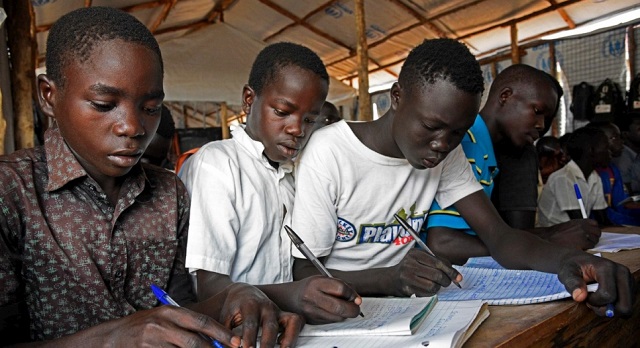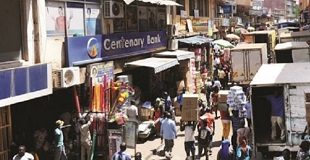
An experiment in refugee education from Kyangwali in Uganda, shows the way to self-sufficiency
COMMENT | JOSEPH MUNYAMBANZA | In a small community on the equator, children from diverse backgrounds attend classes in one of the region’s top primary schools. The school has a brass band, a farm, an artists’ collective, microfinance and literary clubs, and support groups for victims of domestic violence. There is even a mentorship program to help girls affected by conflict continue their studies.
This educational paradise is not in a rich country with unlimited resources; it is in a refugee camp in western Uganda. It is funded not by infusions of foreign aid, but by refugees operating on a tight budget. And it is a blueprint for empowering refugees everywhere.
This experiment in refugee education began in 2005, when I and other children were living in the Kyangwali refugee settlement in Uganda’s Hoima district. With little food and limited access to health care, we struggled to survive; formal schooling was out of the question. But, because we understood that education was the key to prosperity, we taught each other what we could. Older students tutored younger students and everyone worked to earn money to buy textbooks and uniforms.
In time, these seeds of grassroots learning eventually blossomed into CIYOTA, a youth-led, volunteer organisation that runs training initiatives as well as the COBURWAS school, named for the countries of origin of the children in the refugee settlement: the Democratic Republic of Congo, Burundi, Rwanda, and South Sudan.
Today, more than 1,500 students are enrolled in primary schools started by CIYOTA and CIYOTA alumni. More than 700 graduates have attended secondary school, and more than 40 alumni are pursuing advanced degrees at universities around the world. Our graduates have been honoured as Mastercard Foundation Scholars for their academic aptitude, social consciousness, and leadership qualities. And alumni have even attended the African Leadership Academy, one of Africa’s preeminent training colleges. This organisational relationship is particularly important, as it has greatly enhanced CIYOTA’s professional network.
Many young Africans have already benefited from the CIYOTA initiative, but our work does not stop at the classroom door. Because we understand that children learn better when they have strong support systems behind them, we also work with parents and community members to make education a higher priority. In this way, we hope to reach even more children in need of quality education.
Our organisation may have humble roots, but our plans are grand. We want to transform Africa by broadening poor students’ access to knowledge. In our view, finding a seat in school is only the first step; we want to inspire children to become leaders and entrepreneurs, and to apply skills learned in school to improving their communities and countries. As refugees, our goal has always been empowerment through self-sufficiency.
But executing even the best-laid plans requires significant resources, and CIYOTA would still be an idea were it not for the generosity of others. For example, during a chance encounter years ago, I met a well-connected fundraiser at the African Leadership Academy who helped us raise $20,000 in seed money. And the office of the prime minister donated land so CIYOTA could cultivate bananas, maize, and other produce to feed students and generate income.
These gestures are all the more remarkable given the growing number of refugees flooding into Uganda. Today, some 1.5 million displaced people live in the country, and that number is only likely to increase as regional conflicts intensify. At a time when other countries are turning refugees away, Uganda is swinging its doors open.
We want refugee youth around the world to be inspired by our experience. Newly displaced people need food and emergency support, but the longer refugees are away from their homes, the more they need access to institutions that enable self-determination. With jobs, land, and schools, refugees can recapture something lost when they fled: hope. If the world is ever to achieve universal primary education, a goal the international community committed to nearly seven decades ago, it will need many more schools like ours. The refugee-run education programs in Kyangwali are examples of what can happen when young people are given the tools to manage their own destiny.
****
Joseph Munyambanza is Executive Director of CIYOTA and a Mastercard Foundation Scholar.
Copyright: Project Syndicate, 2018.
 The Independent Uganda: You get the Truth we Pay the Price
The Independent Uganda: You get the Truth we Pay the Price


